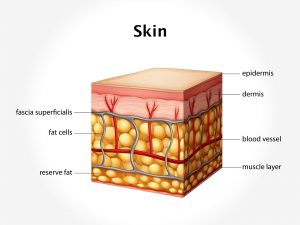Causes and risk factors
The disease is an autosomal recessive inherited disease. Hartnup disease occurs as a result of genetic mutation in the SLC6A19 gene. There is decreased tryptophan in the blood which leads to decreased production of niacin, and in turn niacin deficiency causes skin rash. The symptoms are seen during spring and early summer after exposure to sun. Symptoms can be triggered by fever, drugs, emotional or physical stress, etc.
Clinical presentation
Many a times it is asymptomatic. Symptoms are often observed in childhood. Patient presents with symptoms such as red, scaly skin rash, pellagra like symptoms [due to niacin deficiency], usually when skin is exposed to sunlight [skin photosensitivity]. Ocular signs include photophobia, nystagmus, double vision, etc. Neurological symptoms such as delayed motor development, headache, uncoordinated movements, abnormal muscle tone, intermittent cerebellar ataxia, and trembling can be observed. Psychiatric symptoms like mood changes, instability, hallucinations, and delusions are common. Intellectual deficit and short stature is observed in some patients.
Investigation
Medical history by the patient and clinical examination by the doctor helps in diagnosis. Urine analysis is done. Biochemical tests are required. Neutral hyperaminoaciduria detected in urine chromatography is diagnostic of the disease.
Treatment
Treatment involves advice of high protein diet, avoidance of sunlight, and photosensitizing drugs. Avoiding sun exposure by wearing protective clothing, using proper sunscreen will also help in managing the disease. Taking supplements containing nicotinamide contribute further to the treatment. Neurologist and psychiatrist’s opinions are taken for respective symptoms.
Complications
Complications such as changes in skin color, permanent psychiatric disorder can occur.
When to Contact a Doctor
If one has a family history of the disease and observes similar kind of symptoms in the child then one should contact the doctor.
Prevention
Prevention of the disease is possible by genetic counseling of the people having family history of the disease. Nutritional supplements for niacin deficiency, B complex can prevent the disease.
Facts and figures
The disease prevalence is 1 in 30,000.
Systems involved
Urinary system, digestive or gastrointestinal system, and nervous system.
Organs involved
Kidney, intestine, skin, eyes, brain.
























